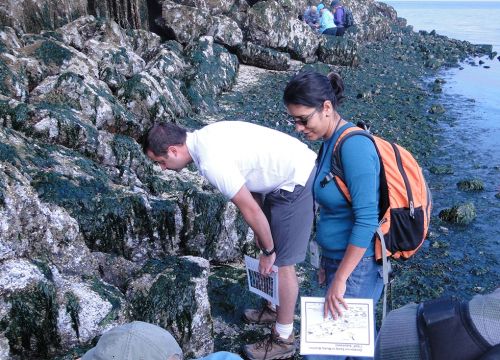Science of Oil Spills Training: Apply for Fall 2017
June 28, 2017 - We are now accepting applications for our next Science of Oil Spills class. The class will run the week of Nov. 13, 2017 in Anchorage, Alaska. The Office of Response and Restoration is a leader in providing scientific support to the U.S. Coast Guard in spill response and in training emergency responders. Our Emergency Response Division created the Science of Oil Spills class--called SOS--for the new and mid-level spill responder to educate them on the fundamentals of spill response. We offer several classes a year and train about 160 students annually. Science of Oil Spills class topics include:
- Fate and behavior of oil spilled in the environment.
- An introduction to oil chemistry and toxicity.
- A review of basic spill response options for open water and shorelines.
- Spill case studies.
- Principles of ecological risk assessment.
- An introduction to damage assessment techniques.
- Determining cleanup endpoints.
Throughout the training, an overarching theme will be answering the five key questions that help guide spill response:
- What was spilled?
- Where could it go?
- What will it affect?
- What harm could it cause?
- What can be done to help?
To reinforce the classroom lectures and exercise, the students will also participate in field activities. We will accept applications for the Anchorage class until Friday, Sept. 8. Applicants will be notified of their acceptance status by Friday, Sept. 29, via email. To view the topics for the next class, download a sample agenda [PDF, 170 KB]. Please understand that classes are not filled on a first-come, first-served basis. We try to diversify the participant composition to ensure a variety of perspectives and experiences, to enrich the workshop for the benefit of all participants. Classes are generally limited to 40 participants.
For more information, and to learn how to apply for the class, visit the SOS Classes page.

